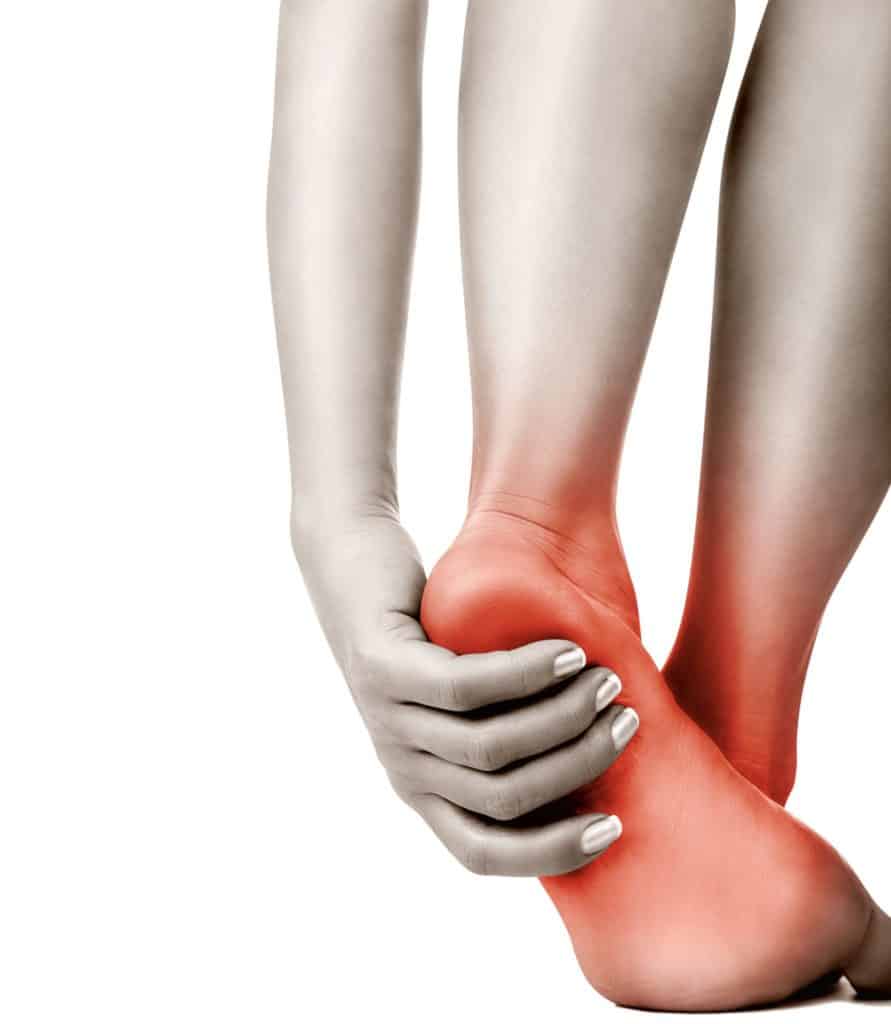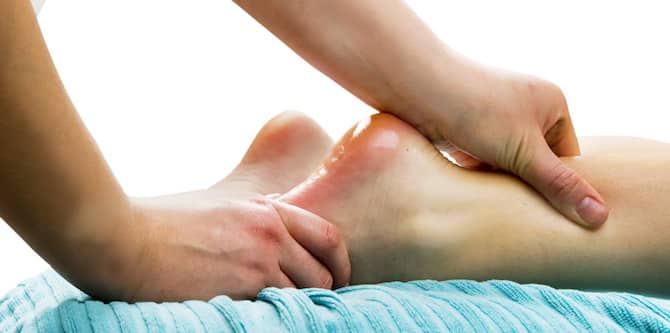Heel Pain
Experiencing pain in the heel of your foot is distressing. Our feet are the primary form of transport that carries us between point A and point B. When they are not working correctly and causing heel pain, it can often leave us feeling frustrated and dependent on others for help.
Feet are complicated with hundreds of interconnected parts all dependant on one another to function properly.
It takes just one strained tendon, muscle or ligament to create acute heel pain, and if not treated properly, chronic and debilitating pain that can last a lifetime.
Having heel pain correctly diagnosed and treated can give you back your independence and deliver a better quality of life.
Your Personal Heel Pain Treatment Plan from Melbourne's Leading Podiatrists
A podiatrist’s role is to diagnose the exact cause of heel pain, and determine which factors have had a negative impact. These can include poor shoe choices, overuse sports injuries and strains (particularly running), or landing awkwardly on a hard surface.
One of our qualified podiatrists will carefully assess your feet, ensuring we have a correct diagnosis before putting a management plan in place.
Our professional team at PridePlus Health in Melbourne, Pascoe Vale or Emerald will design a treatment plan to rid you of pain in your heels, and have your feet back to feeling and working at their best.


What Treatment Can I Expect for Heel Pain?
Our highly trained podiatrists will prescribe a treatment plan to relieve the pain in your heels designed to fit your lifestyle and fitness goals.
Treatment is tailored to your individual needs and may include:
- Strength building
- Rehabilitating and stretching tight soft tissue structures
- Other exercises for you to take away and work on yourself
- Combined with a comprehensive physical therapy plan to get you back to your best
During your heel pain treatment, your podiatrist will develop a management plan which may include orthotics or inserts for shoes, taping of the ankle or a support device, and a long-term strengthening program to ensure you remain injury-free in the future.
Ready to stop your heel pain in its tracks?
Make an appointment with our podiatry team in Melbourne, Pascoe Vale or Emerald and let us take pride in your feet. No referral required.
What Causes Heel Pain & Plantar Fasciitis?
Heel pain can stem from a number of causes and correctly identifying heel pain is paramount for effective treatment.
A few conditions that cause heel pain include:
- Achilles tendinitis
- Plantar fasciitis
- Irritation of the tendon that connects your calf muscle and heel bone
- Stress fractures of the heel bone
- Stone bruising to the fat pad of the heel
- Nerves around the heel becoming trapped around joints or within muscles
By far the most common cause of heel pain is a condition known as 'plantar fasciitis'
Plantar fasciitis, or 'plantar fasciopathy' if we are getting technical, is often associated with x-ray examination with heel spurs and characterised by pain on the first step when getting up in the morning or after long periods of sitting.
The plantar fascia/plantar aponeurosis is an active, flexible band of tissue which runs along the bottom of the foot from the heel to the ball of the foot.
The role of the plantar fascia is two-fold:
When making initial contact with the ground, the foot undergoes a movement called 'pronation'. The heel makes initial contact with the ground on the outside of the foot and rolls in towards the big toe on the inside. During this movement, the plantar fascia acts like a spring, where it lengthens, absorbing and storing the force of the foot hitting the ground.
As your foot prepares to push off over your big toe, the foot becomes a rigid lever to propel the body in a forward direction, and the plantar fascia releases stored energy, driving you forward.
Put simply, we have a spring under our foot assisting us to move efficiently every step. This takes the strain off our leg muscles to allow us to walk and run.
Plantar fasciitis is a condition that occurs over time when the load on the foot exceeds the strength of the plantar fascia and surrounding muscles, causing the plantar fascia to become irritated.
If left undiagnosed or untreated, plantar fasciitis can develop into a heel spur - a calcium deposit where the fascia tissue band connects to the heel bone.
While the heel spur itself is not typically a cause of pain, it is an indication of long-standing high load or strain on the plantar fascia.



